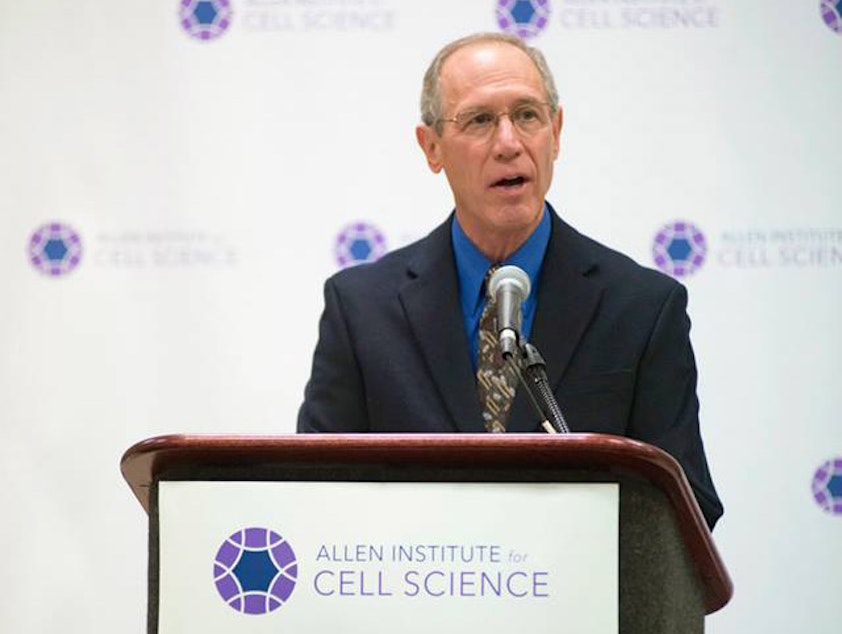Billionaire Paul Allen To Invest In Seattle Cell Observatory

Software billionaire Paul Allen announced plans to invest $100 million in a new cell biology institute in Seattle's South Lake Union neighborhood.
KUOW's Jamala Henderson spoke with biotech journalist Luke Timmerman about how this cell observatory will exist in the public domain and offers potential for predictive modeling.
Timmerman: Paul Allen plans to create what they call a cell observatory. The idea is to look at the cell’s genetic code and create a predictive model for what that cell will look like and how it behaves differently when it encounters a certain stimulus. Like say, caffeine: You might respond differently to caffeine than me, but we don't really know in biology how to predict that response at the cellular level.
Computation has come a long way in the last few years and it's now possible to create these 3D computer models of a cell and display it on a web browser so that a scientist in New Zealand, for example, can look at it and make some hypothesis about how a cell might respond to a certain stimulus and test it out on a 3D model of the cell.
If you think about how, here in Seattle, we know a lot about airplane modeling because we know the laws of physics quite well. You can take a plane and put it on a computer and say, it's this shape and it weighs this much and the weight is distributed a certain way with this much power. That plane will fly. It's highly predictive. And of course you still have to run test flights, but biology doesn't have anything like that that kind of predictive power.
Sponsored
Henderson: What kinds of discoveries could it lead to?
Timmerman: It could help pharmaceutical companies test their experimental drug compounds in a computer environment before they run it through long, expensive, tedious clinical trials. That's one obvious application.
But on a more basic level it could also help scientists predict when an individual tips from a healthy state into a disease state, with say Parkinson's or Alzheimer's. That's hugely valuable for basic science.
Henderson: What kinds of concerns do critics have about this kind of research being privately funded?
Timmerman: I think in the past, critics have had concerns about intellectual property in terms of who owns it. For example, would Paul Allen try to reach through and assert patent rights to somebody’s billion-dollar-drug that might have come from this? The Allen Institute has essentially resolved those issues for the most part.
Sponsored
People could argue that this really should be the job of the federal government – the basic research budget of the National Institutes of Health. But the fact is that federal agency primarily funds individual researchers with individual bright ideas and they don't invest very much in big resource infrastructure projects like this.
So Allen's hope is by making this kind of investment in infrastructure, it will enable scientists to go forth and get those grants and pursue their ideas.

